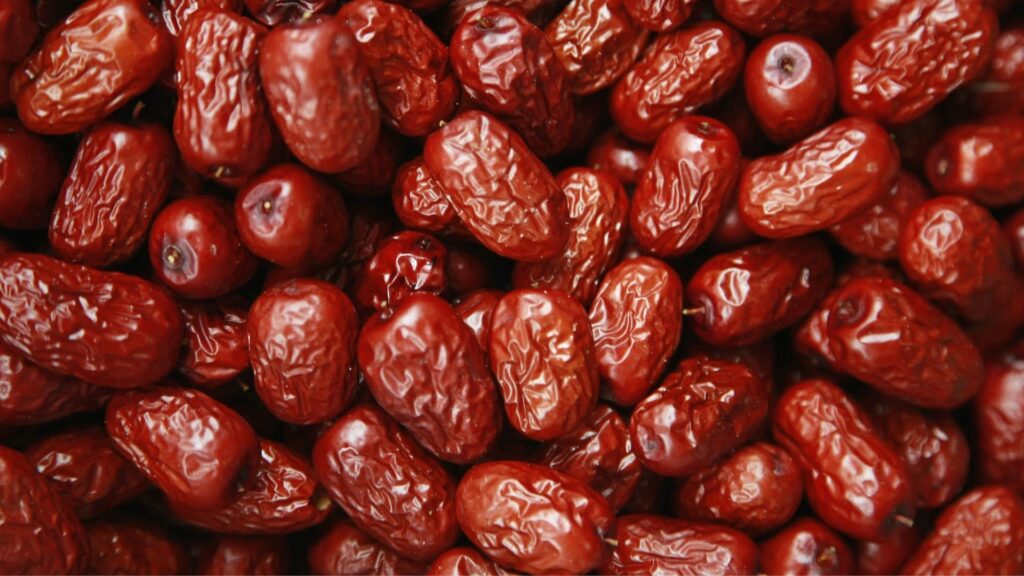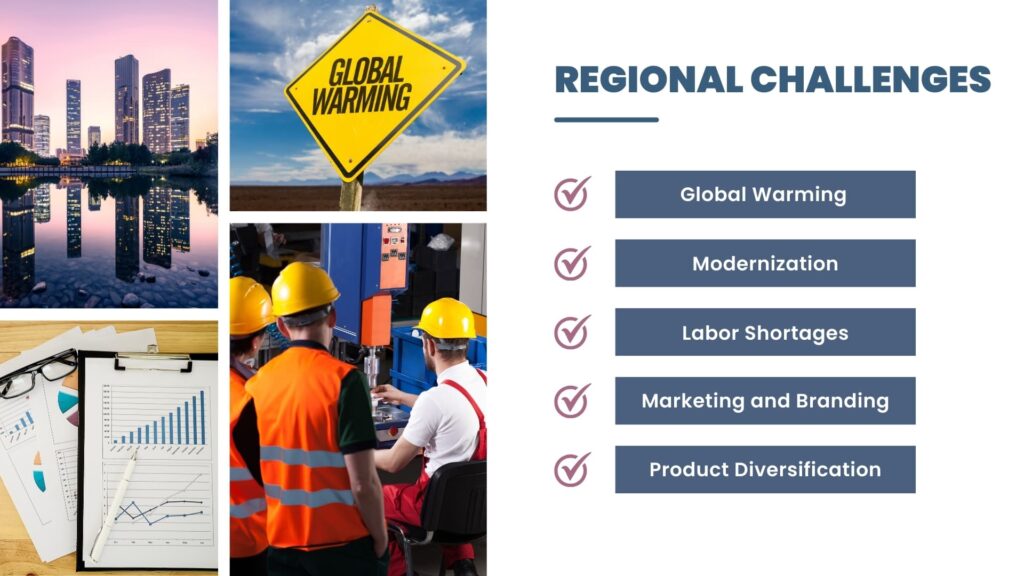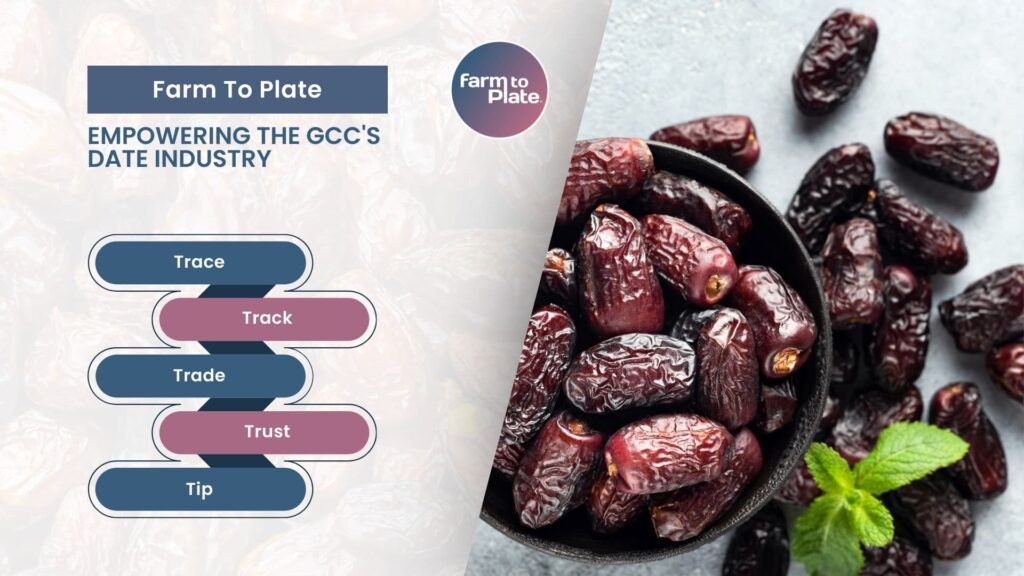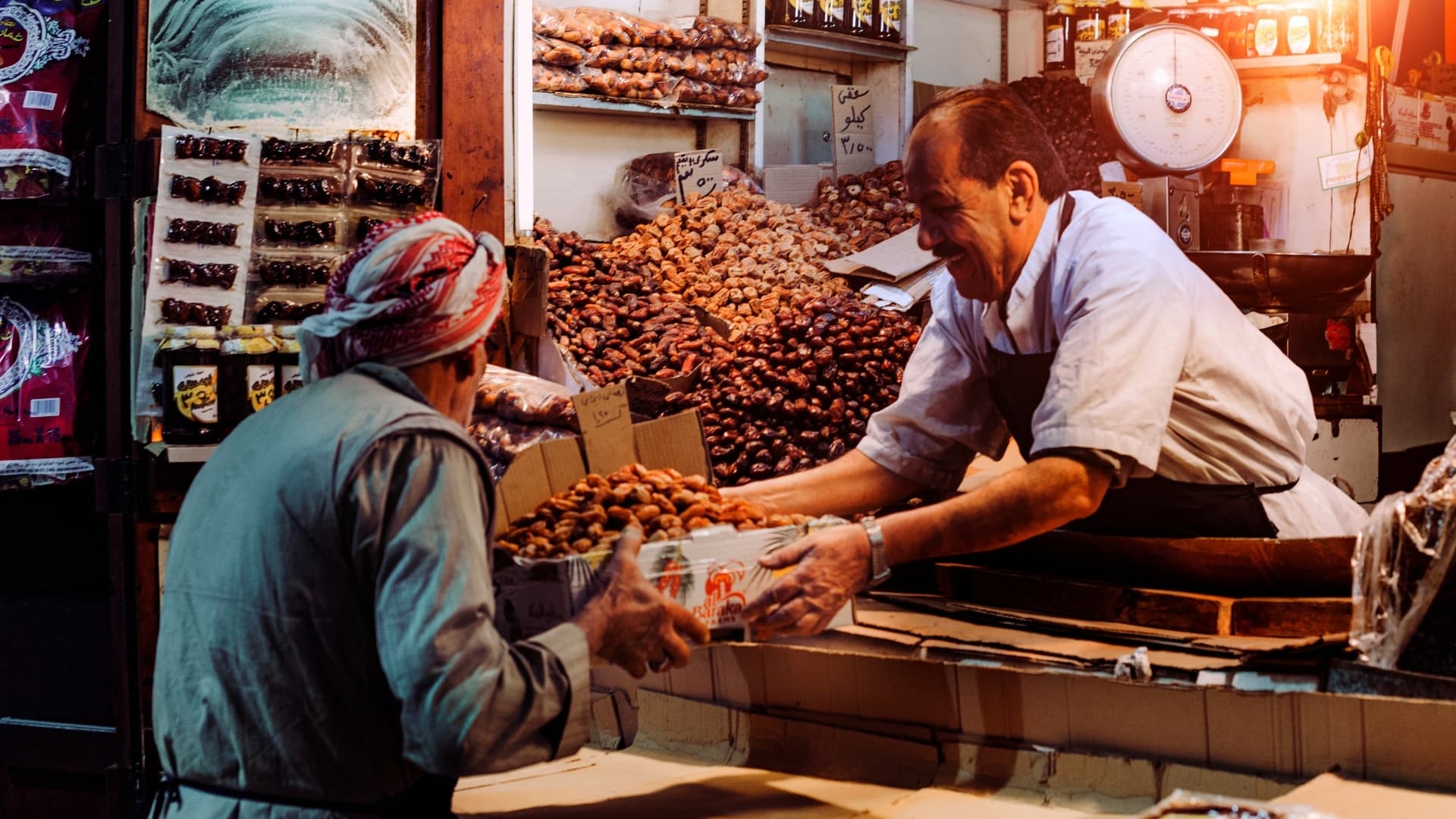Dates have been a favorite part of life for the people living in GCC for centuries now. Farmed for over 7000 years, these multipurpose fruits are more than just a tasty snack; they define this region’s culture and are an integral part of its economy. About 75% of all world date production is accounted for by GCC countries making it a leading country in this sector.
However, despite its success, the dates industry in GCC faces some contemporary challenges. Global warming and water scarcity pose threats to traditional methods of cultivation as well as changing consumer preferences and emerging markets. This article will discuss these issues and suggest innovative remedies that could enable the future empowerment of date production within the GCC.
A Flourishing Industry: Dates Production in the GCC
GCC has a thriving date palm production industry which contributes much to global date production. Saudi Arabia, United Arab Emirates (UAE), Oman, Bahrain, and Qatar – collectively produce over 60% of the world’s dates. The region is home to over 20 million date palm trees, with Saudi Arabia leading the pack with an estimated 10 million trees.
Top Date Producers in the GCC
| Country | Estimated Date Palm Trees (Millions) | Date Production (Tonnes) (2021) |
| Saudi Arabia | 10 | 1,350,000 |
| United Arab Emirates (UAE) | 5 | 700,000 |
| Oman | 3 | 400,000 |
| Bahrain | 1 | 100,000 |
| Qatar | 0.5 | 50,000 |
The Date Palm Value Chain: From Farm to Plate
The date palm value chain in the GCC is a network of interconnected stakeholders ranging from producers to consumers, with each stakeholder having a key role to play in the process of bringing dates to consumers. Here’s a breakdown of the key players in the date palm value chain:
| Stakeholder | Role |
| Date Farmers | Grow date palms using traditional and modern approaches, such as hand pollination, to ensure a high-quality harvest. |
| Processors and Packers | Perform processing operations such as sorting, cleaning, grading, and packaging to enhance the quality and extend the shelf life of dates. |
| Distributors and Retailers | Sell dates to consumers through markets, grocery stores, and specialized shops to offer a diverse range of date products. |
| Exporters | Supply date products to global markets, with major export destinations including the US, Europe, and Asia. |

The GCC’s economy is largely influenced by the trade in dates as it earns considerable revenue from exporting them. Based on the report, Saudi Arabia’s date exports rose by 14% in 2023 to reach 1.462 billion riyals compared to 1.280 billion riyals of last year. This amount not only supports farmers but also helps create jobs across other segments such as processing, packaging, transportation, and logistics companies for instance.
Regional Challenges and Opportunities

Despite its success, the GCC’s dates industry faces some challenges. These include:
● Global Warming: The raised temperatures and lack of water remain huge obstacles against successful palm plantations. Drip-irrigation systems and research into drought-resistant types of dates are what should be done to achieve sustainability in the long run.
● Modernization: To enhance performance and water efficiency, the inclusion of contemporary technological advances into agriculture and irrigation systems is key.
● Labor Shortages: The dates industry mostly relies on manual labor like picking and processing which is a seasonal occupation. Productivity can be greatly hampered by a dearth of skilled or motivated workers.
● Marketing and Branding: Marketing strategies and brand perceptions as worldwide traders will help GCC dates compete with other global producers hence enlarging their market coverage area.
● Product Diversification: Offering a range of products that go beyond the traditional dates can be a great way to generate additional revenues and meet the growing demand for diversified products such as date syrups, date snacks, and date-based beauty products.
Growing Trends that Shape the Future of Dates in the GCC
The GCC’s date industry not only remembers its glorious past but also embraces the present whereby innovations are the key to a better future. Here are some key trends shaping the future of dates in the GCC:
| Trend | Description |
| Sustainable Practices | Implementation of sustainable agricultural techniques such as precision agriculture and drought-resistant irrigation systems to battle the effects of climate change and ensure food security. |
| Embracing Technology | Implementation of precision agriculture, sensors, and data analytics to facilitate the economical usage of resources and adaptability to changes within the industry. |
| Value-Added Products | Diversification into snacks, energy bars, syrups, and beverages to satisfy the dynamic customer base and spread the market. |
| E-commerce Expansion | Utilizing e-commerce platforms for global market reach, using online presence, and exporting via efficient logistics. |
FarmToPlate: Empowering the GCC’s Date Industry
The Gulf Cooperation Council (GCC)’s dates industry is a crucial pillar of the region’s agriculture but is faced with challenges like climate change and market demands. Out of these challenges FarmToPlate has come up with a powerful set of modules that can address them as well as empower date growers, processors, and retailers.
Here are some ways in which FarmToPlate addresses key issues:

● Trace: Get to know where your dates came from farm-to-fork. Trust and value building through transparent tracking right from origin to harvest practices to storage conditions that characterize consumers who are interested in transparency.
● Track (Map And Alert In Real-Time): Keep tabs on your shipments of dates in real-time using FarmToPlate’s tracking module. Therefore, timely delivery and optimal conditions will be maintained through instant alerts on any delays or deviations.
● Trust (Blockchain Ensures Transparent, Trusted Collaborations): Use blockchain technology to create an ecosystem that is secure and transparent. In this way, data integrity is upheld by FarmToPlate thus eliminating fraud and fostering trust among all actors from producers to vendors.
● Solutions & Services for Resource Conservation): FarmToPlate does not stop at just dates. Soil testing as well as irrigation optimization solutions are integrated into our platform so you can save water, a scarce resource in the GCC. Make your business sustainable and reduce your impact on the environment.
● Tip (Support Farms, Give Back): Make it possible for customers to directly patronize date growers and embrace sustainable farming practices. Customers are encouraged to leave tips for farmers using the Tip module of the software which helps develop stronger bonds and encourage local food systems in the GCC.
“Running a date farm like ours in Al Ain is all about tradition, but that doesn’t mean we can’t embrace innovation! FarmToPlate has been a game-changer for us. Before, tracking our date shipments from harvest to market was a logistical nightmare. Now, with FarmToPlate’s Trace module, we can see exactly where our dates are every step of the way. This transparency gives us peace of mind and allows us to ensure our customers are getting the freshest, highest-quality dates possible.”, – Aliyyah, Al Ain Oasis
Conclusion
With over 7000 years of cultivation, dates have become a cherished part of the region’s culture and a cornerstone of its economy. GCC countries lead global date production, facing challenges like global warming and water scarcity.
The value chain of the date palm production industry produces billions annually from farmers to exporters. The future brings a lot of innovations to the industry. Sustainable measures, technological innovations, and value-added products will be the future of GCC dates. By emphasizing quality and diversifying the varieties, GCC dates will continue to enjoy global demand for a long time.
Initiatives like FarmToPlate empower the industry by addressing issues such as traceability and resource conservation. Through technology and transparency, the GCC’s dates industry is ready for sustainable growth and global impact.
As we navigate a changing world, the GCC’s dates industry will continue shaping the region’s economy and culture. With resilience, innovation, and sustainability, the future of dates in the GCC promises abundance and prosperity.
Tanya A Mishra, Technical Content Writer & Marketer at farmtoplate.io (specialising in MENA Tech Landscape). She has been working towards crafting insightful content on topics like Blockchain, Agritech, AI and many more.
